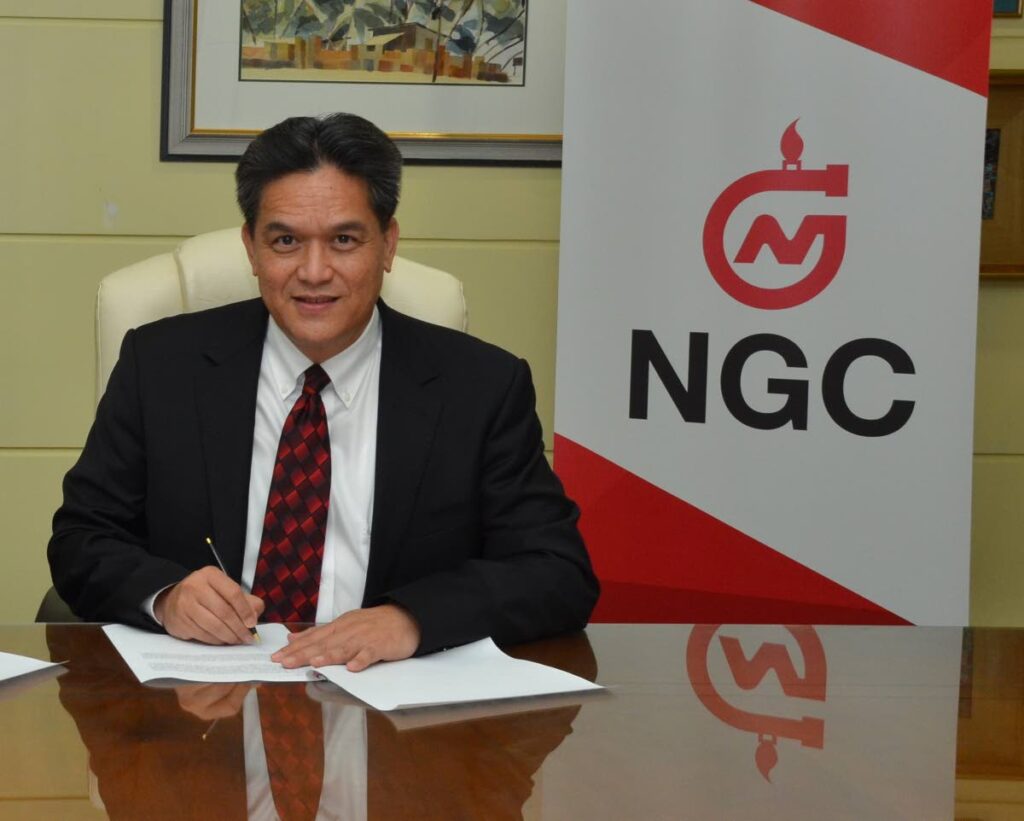NGC reports 28% reduction in GHG emissions

The National Gas Company of Trinidad and Tobago (NGC) reported a 28.87 per cent reduction in its greenhouse gas emissions (GHG), from 22.31 thousand tonnes of CO2 in 2021 to 16.98 thousand in 2022.
The statistic was one of the revelations in the 2022 sustainability report released earlier this week.
The GHG emissions calculated included carbon dioxide, methane and nitrous oxide from purchased electricity, natural gas, petroleum and diesel.
The report said NGC had no incidents which resulted in prolonged leakage of natural gas in 2022, which contributed to the emissions.
Methane emissions from non-operated joint ventures, which NGC calculated based on the company’s equity in each venture, was measured at 1,312 tonnes in 2021, but increased to 3,720 tonnes in 2022. The report attributed the increase to major leaks during operations at Phoenix Park Gas Processors Ltd (PPGPL) last year.
The location of one of the two leaks detected at PPGPL in February 2022 meant it could only be repaired during PPGPL’s facility turnaround in April/May 2023,it said."This limitation on the scheduling of the repair was one of the contributors to the reported methane emissions,” the report said.
NGC said the majority of its GHG emissions come from routine and fugitive venting in its processes. It also expressed a commitment to reduce methane emissions, noting that natural gas consists of 90 per cent methane, which accounts for 25 per cent of global warming. Emissions were reported in the venting, fugitives, flaring, stationary combustion, and mobile combustion.
“As a leading proponent of clean energy and sustainability, NGC is committed to reducing methane emissions in its operations."
It said NGC’s methane management processes include satellite and optical gas imaging technology for monitoring and measuring methane emissions as part of its leak detection and repair programme (LDAR).
"Asset integrity management; leak detection and mitigation; and process safety management systems are all employed to prevent and/or reduce methane emissions,” the report said.
NGC said it aims to reduce overall methane emissions for operated assets by 25 per cent, fugitive emissions by 50 per cent and routine venting emissions by 75 per cent, all by 2025.
A year without serious incidents
NGC also celebrated a significant health, safety, security and environmental (HSSE) milestone, making a full year without a lost-time incident – an accident or injury that resulted in time off from work or loss of productive work.
It reported five first-aid incidents, four based at the company itself, and one involving contractors.
It also recorded 1.7 million total man-hours worked, with 71 workplace inspections. It had a zero rating for accident frequency and accident severity, and recorded zero fatalities.

Photo courtesy NGC - Courtesy NGC
It said employees have access to NGC’s policies, procedures and guidelines in HSSE through a portal and it provides training for employees in several safety practices, such as basic fire-fighting and first aid. Drivers are given defensive driving training and certification.
“HSSE continues to be embedded in the organisational culture through the inclusion of HSSE moments at the start of all company meetings and the dissemination of periodic HSSE-related communiques. Both management and non-management employees are involved in HSSE monitoring, evaluation and co-ordination through the company’s HSSE committees – the Central HSSE Steering Committee and the HSSE Co-ordinating Committee. These committees meet every two months and are supported by nine subcommittees that meet monthly,” the report said.
The report added that an emergency response plan (ERP) was developed for each of NGC’s facilities, which includes identifying potential risks and providing recommendations for prevention and mitigation.
“Each ERP includes an emergency management plan, which governs the operations of the emergency operations centre – the central command facility – and the control post where the primary command field operations would be executed in an emergency. NGC tests the readiness and responsiveness of stakeholders including leaders, employees, contractors and first responders during the company’s annual emergency response drill exercises. Feedback from these exercises is used to make necessary adjustments and improvements to the ERPs.
“NGC’s job hazard analysis procedure provides details on hazard identification, risk assessment and HSSE controls for routine and non-routine activities,” the report said.
Sustainability in the face of extreme volatility
President Mark Loquan said NGC remained committed to energy transition and the reduction of GHG emissions, despite extreme volatility in the global energy sector, including the world’s gradual emergence from covid19 and the Russia/Ukraine war.
“Russia’s invasion of Ukraine and the subsequent reduction in the supply of natural gas from Russia triggered a rise in the cost of the commodity worldwide. In response to elevated natural gas and liquefied natural gas (LNG) prices as well as extraordinary weather conditions, Europe reverted to burning coal for energy production.
"This represented a major setback in the global energy transition. In 2022, the energy trilemma – the need to balance competing priorities of energy security, affordability, and sustainability – became even more critical,” Loquan said.
He said the company’s sustainability strategy, encapsulated in NGC's Green Agenda, is supported by the company’s strategic pillars, which have been transformed to go beyond merely increasing its national contribution to include measurable sustainable development impacts alongside business optimisation, organisational transformation and local and international growth.


Comments
"NGC reports 28% reduction in GHG emissions"